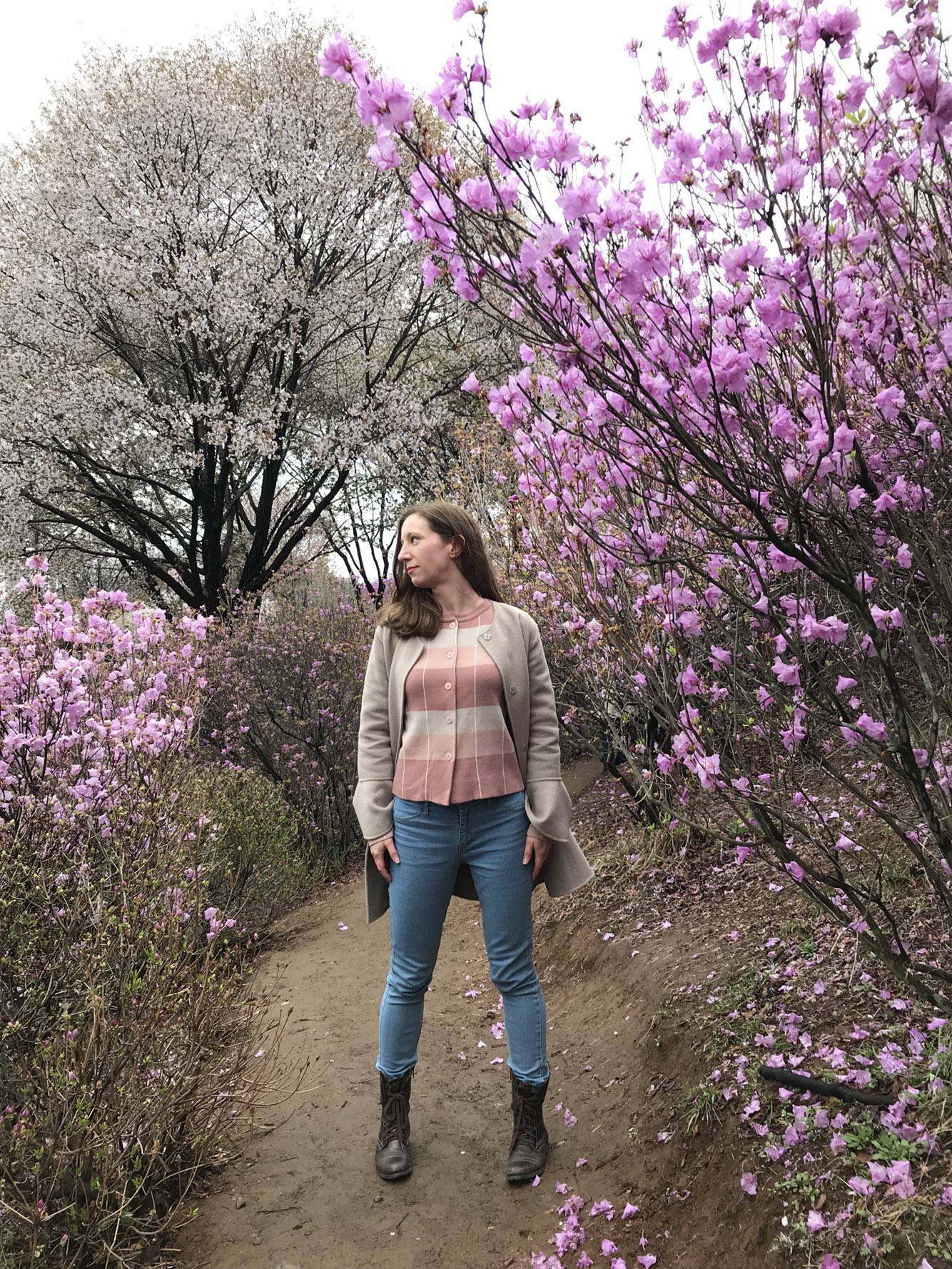Alright – so today we’ve got the honor of introducing you to Rowan Lee. We think you’ll enjoy our conversation, we’ve shared it below.
Rowan, thanks for taking the time to share your stories with us today Do you wish you had started sooner?
I’ve taken a circuitous route to get where I am, but looking back, I’m not sure what I would change. There are times when I wish I had been more focused in my younger days or had a better sense of what I wanted, but there’s a lot to be said for the wisdom that comes with age.
Even though “writer” has been a core part of my identity since childhood, I’ve hardly had what anyone would call a creative career. I’ve been an educator at several colleges and an editor for a testing company, but I’ve only recently started to get paid (a token amount) for my writing. As a teenager, I attended a fine arts high school where I concentrated in creative writing, and later I got an MFA in poetry. Having a creative career was always the goal, but I graduated into the economic recession of 2008 and spent years struggling to make ends meet with part-time jobs–like a lot of my generation. Making a living in creative work is a challenge under the best of circumstances, but the last 15 years or so have been especially rough, and the introduction of generative AI has been really disruptive and anxiety-inducing for writers and artists.
I’m at a point in my life now where I’m okay with doing creative work as a hobby or a side hustle. My day job is somewhat ordinary, but it leaves me with mental and emotional space to focus on the things that I care about in my spare time. Our culture really pushes people to monetize their interests, and that pressure can be a real creativity killer. Now that I’m in my 40s, I’ve come to the conclusion that I don’t want to force my creative interests into a career or depend on writing for money. The things I write about are very niche, and I don’t want to have to worry about appealing to a broad audience.
I’m stubborn. I just want to write about what interests me. If other people are interested in that, cool. If not, at least I can feel like I’ve had my say.
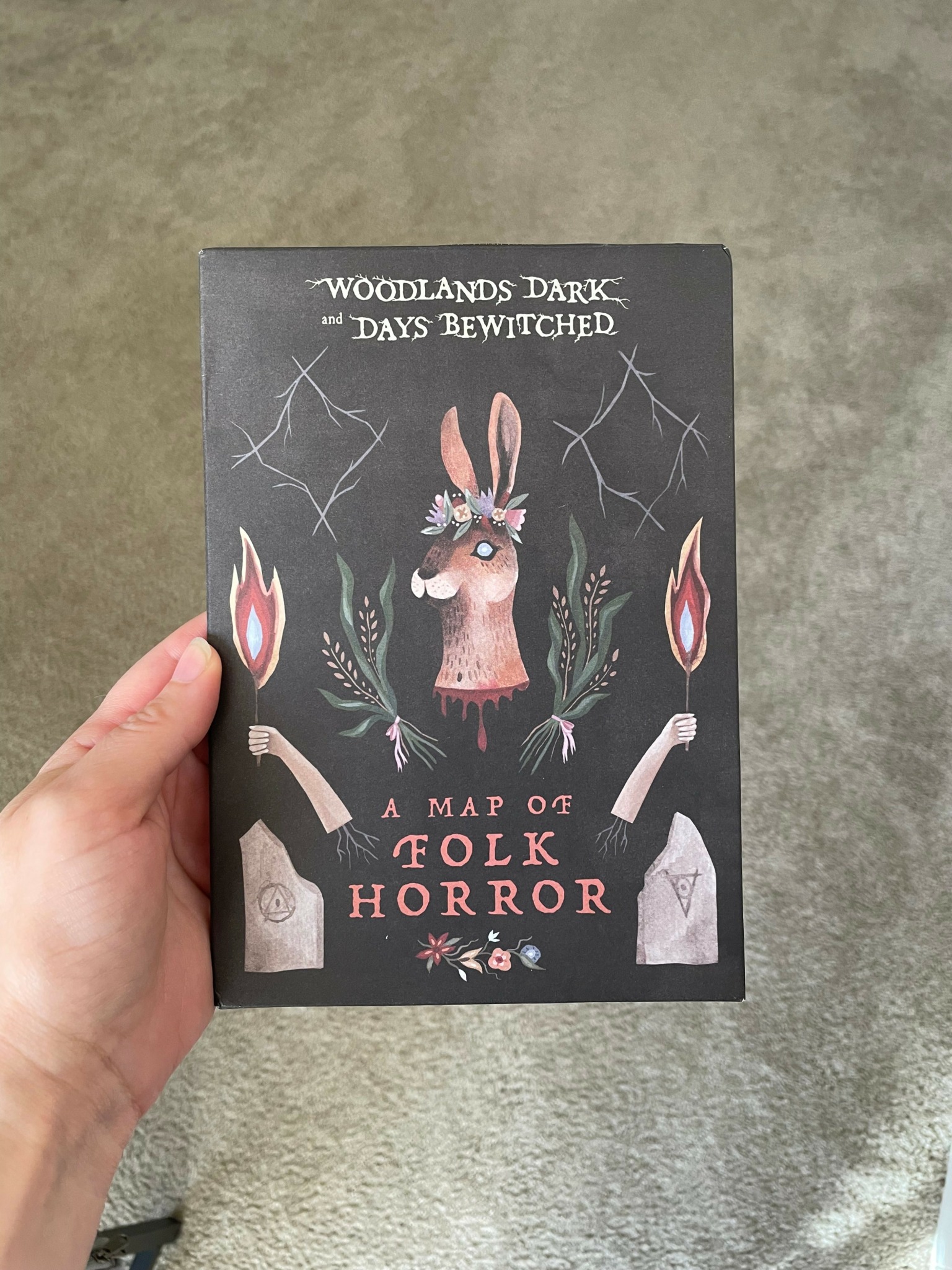
As always, we appreciate you sharing your insights and we’ve got a few more questions for you, but before we get to all of that can you take a minute to introduce yourself and give our readers some of your back background and context?
Although my background is in creative writing, these days I write essays about pop culture, with a focus on horror movies and books. Most of my work is a labor of love, self-published on my personal blog called The Harvest Maid’s Revenge. I also have bylines on the entertainment site Collider, where I write lists about horror movies published under the name Candice Bailey.
Writing has been a constant in my life, even though the type of writing has changed a lot. I started out wanting to write novels before I shifted focus to poetry in graduate school. However, after I finished my MFA, I felt burned out from trying to force myself into a box. My ideas about poetry were at odds with those of my peers. Poetry can be intimidating to the average reader, so I wanted to write poems that felt welcoming. I’ve also always had an interest in the macabre and the fantastical, but within literary circles, genre fiction or speculative fiction was often dismissed as trivial.
I stopped writing for several years after graduate school, but about five or six years ago, I started to reject some of the elitist thinking that I’d internalized and started to find pleasure in reading horror novels. Through this, I discovered Bookstagram, a vast community of readers on Instagram who post book reviews and show off their libraries. I started my own Bookstagram account and really enjoyed engaging with others about the horror novels that I was reading. I especially enjoyed reading books that had folk horror themes, such as Thomas Tryon’s 1973 novel Harvest Home, and when the pandemic hit, this blossomed into a full-blown obsession with the subgenre, which is how I ended up starting my blog.
I suppose if I have a mission, it’s to expose a wider audience to folk horror and examine the ways the genre speaks to our current moment. Horror has always provided commentary about cultural anxieties, and folk horror feels very relevant now. Folk horror is all about isolation, tradition, and a deep connection with nature. The theme of isolation resonates in the real world, where the COVID-19 pandemic created distance within communities. The uncertainty of our times has many people turning toward nostalgia and older traditions for comfort. And our worries about climate change have many seeking a closer relationship with a natural world that they feel they’ve taken for granted.
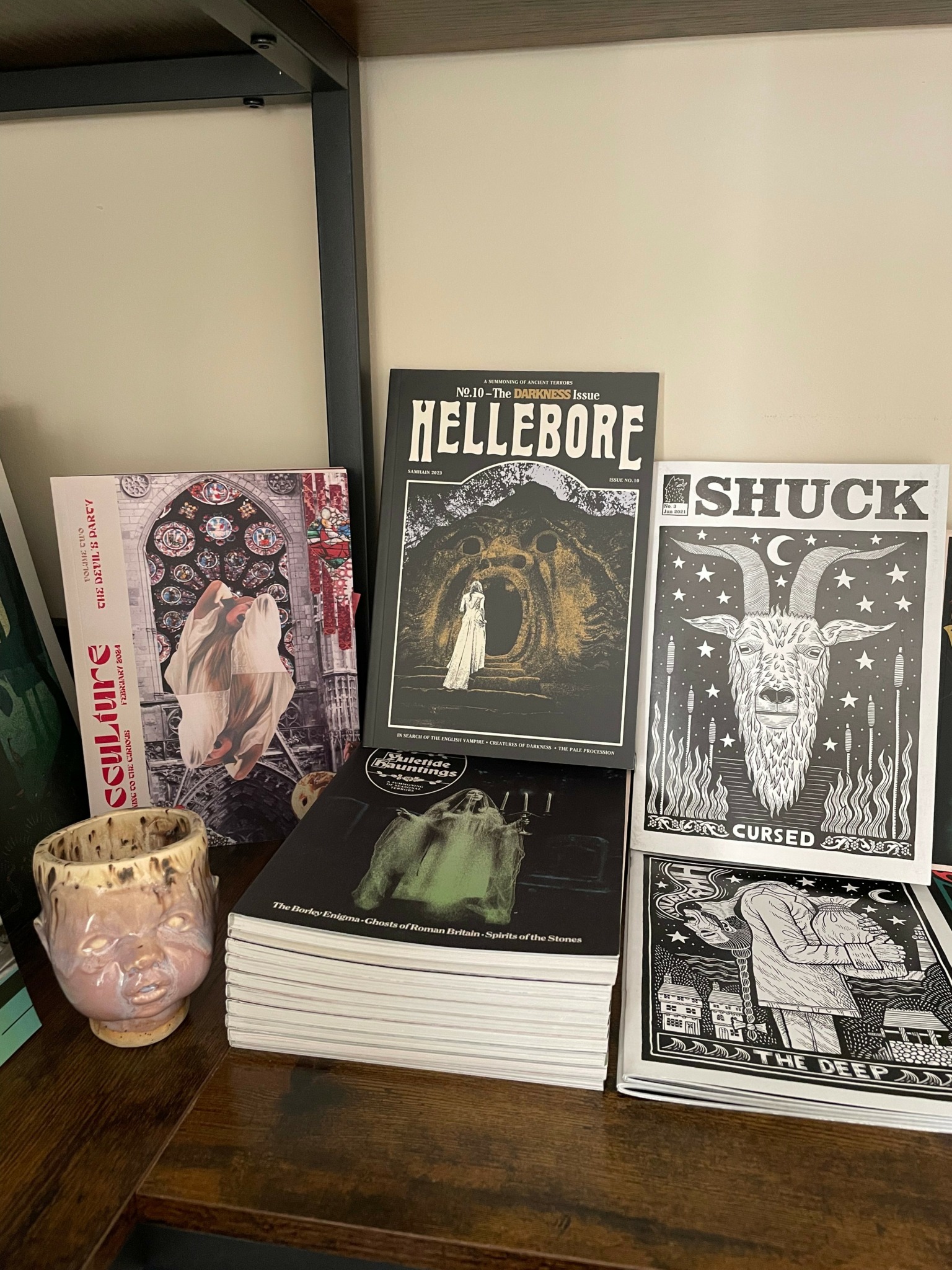
What can society do to ensure an environment that’s helpful to artists and creatives?
The number one thing that’s needed for a thriving creative ecosystem is money. It’s that simple. Creative people need money to survive just like anyone else. Sure, it’s possible for people to create in their spare time “for the love of it,” but it’s much much harder to do that when they’re exhausted from working. If you want people to focus on creating their best work, pay them. The US has a terrible support system for artists. Countries with government programs that support artists have a much more robust creative culture. We rely too much on private funding because a lot of the government systems for giving money to artists have been dismantled or hobbled.
We also need to get generative AI under control. Even though AI art and writing can’t compete with human work in terms of quality, the existence of cheap (or free) machine-generated slop devalues the work of real people. The strange thing is, I don’t know anyone who wants to read AI-generated books or look at the artwork. Lots of people want to play around with making AI content, but nobody wants to consume it. We used to call this kind of self-indulgent impulse a “vanity project”–but at least vanity projects had real people putting in real labor, regardless of whether the end result was good or bad.
I foresee an analogue backlash to gen-AI. Visual artists and writers these days are more hesitant to put their works online where they can be scraped. Art prints and zines in physical format are gaining more traction, which is heartening to me. It will be nice to start collecting tangible things that can be enjoyed offline, as collectors of DVDS, records, and other physical media are already finding out.
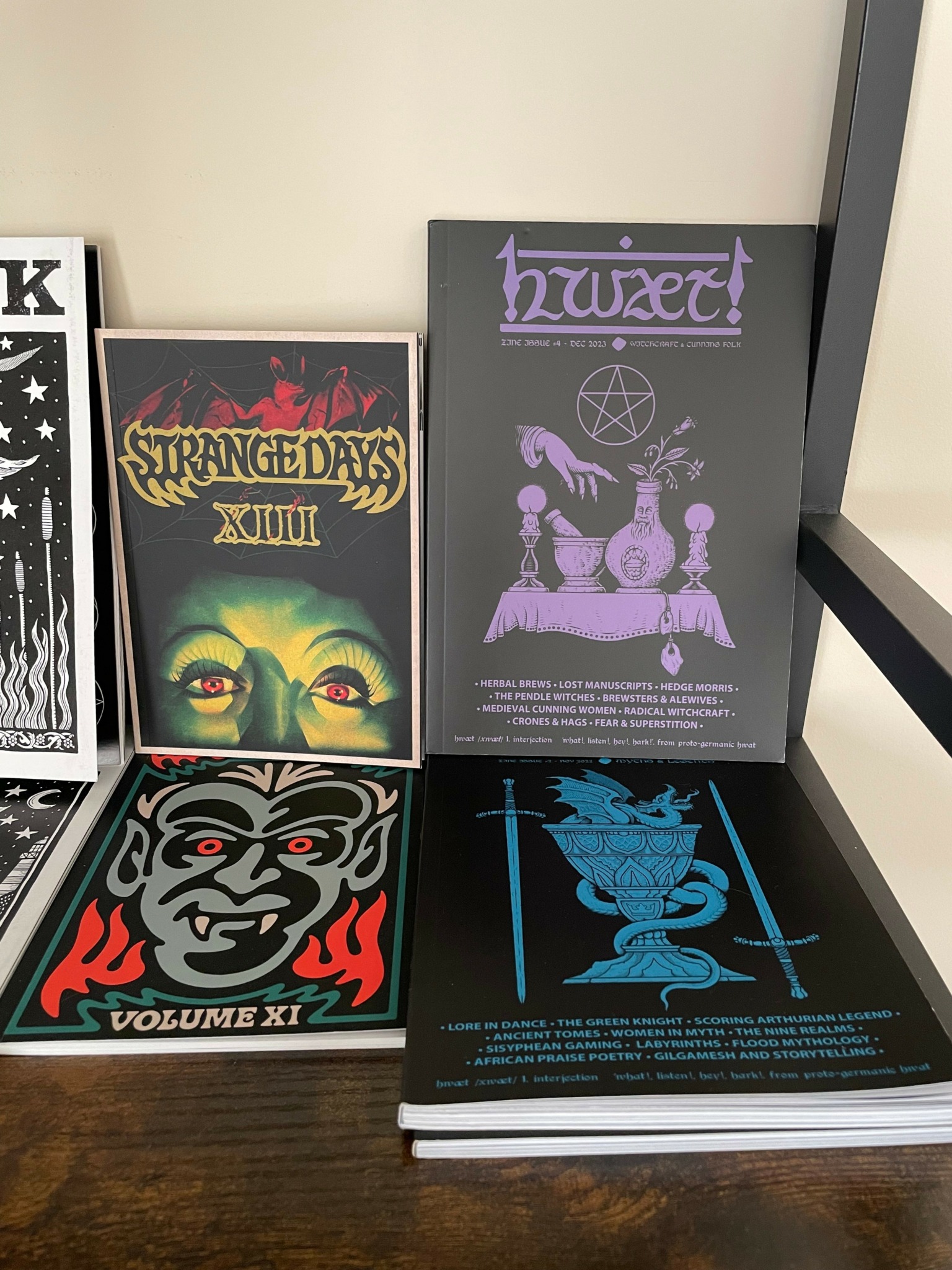
What do you find most rewarding about being a creative?
Earlier, I said that I’m stubborn and that it’s liberating not to care what mainstream readers want. But I would be lying if I said I don’t care at all what other people think. Writing is an act of communication, so even if it frequently feels like I’m screaming into the void with my little blog posts, it’s always such a delight when something I’ve written connects with readers. The most rewarding aspect of blogging about folk horror is getting to know other people with similar interests and getting opportunities through that. I’ve been invited to be a guest on a couple of podcasts this year–Fear Is the Fire, hosted by horror writer Paul Jessup, and Old Movies for Young Stoners, hosted by Bob Calhoun–and I’m always so flattered that someone thinks my opinions are worth listening to. Also, I’ve been contacted by people who were interested in collaborating on a bigger project, so I’m really hoping to see some progress on that front. Stay tuned.
Contact Info:
- Website: https://theharvestmaidsrevenge.com/
- Instagram: https://www.instagram.com/the_harvest_maids_revenge/
- Other: https://bsky.app/profile/theharvestmaid.bsky.social
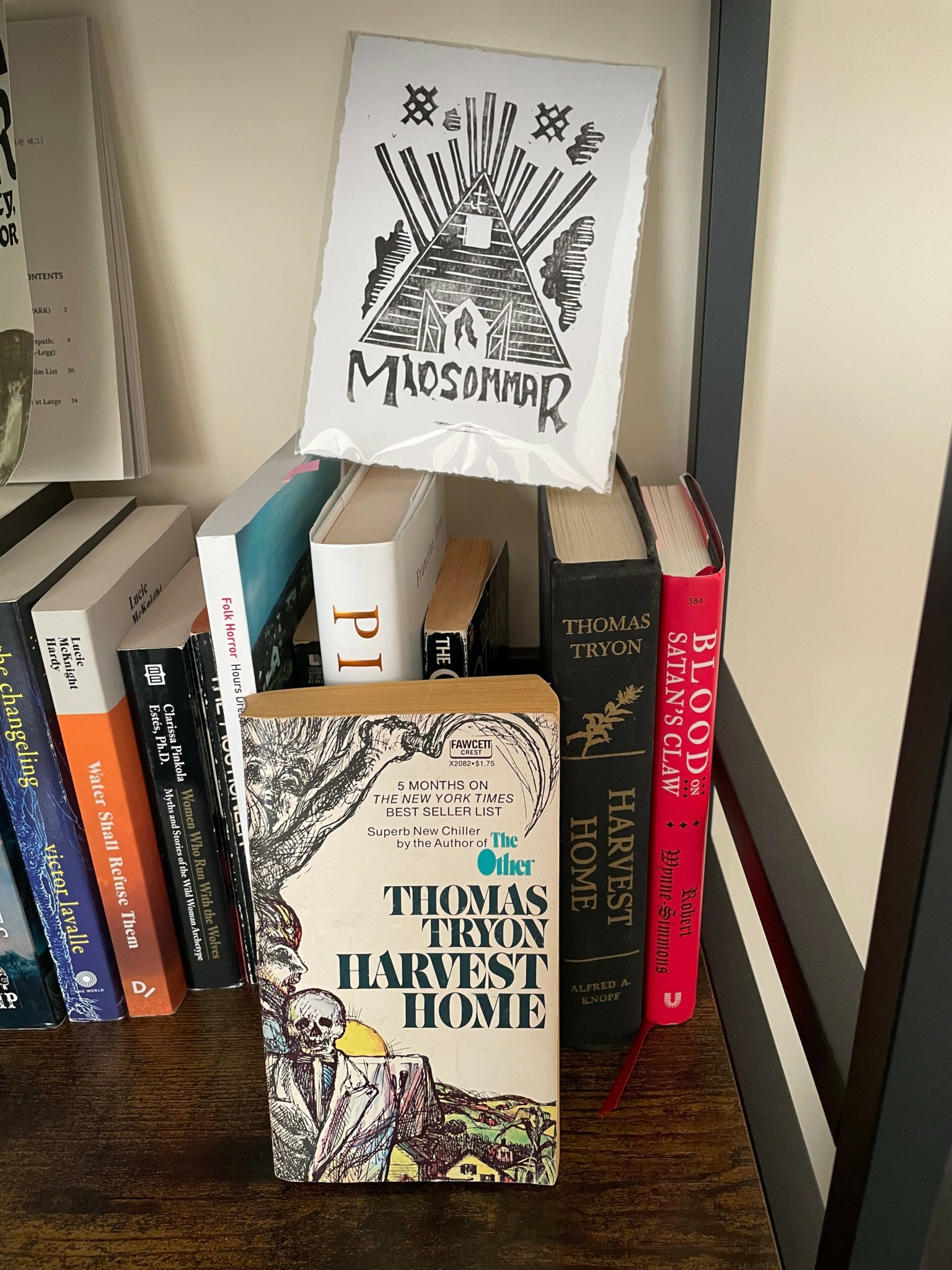
Image Credits
Rowan Lee


